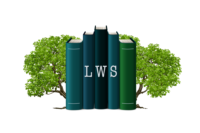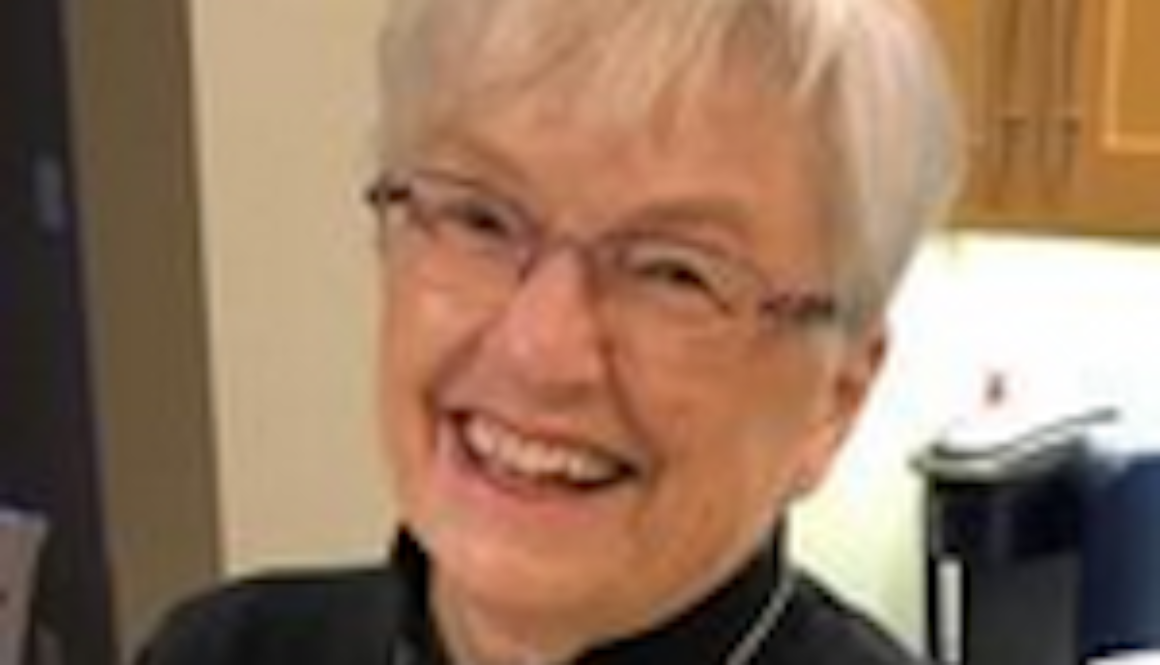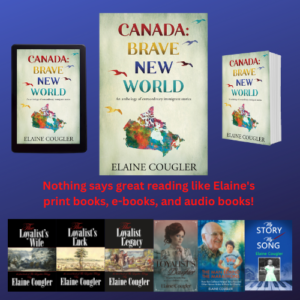Self-Publish But Do It Well
Self-Publish but Do It Well
Written by Elaine Cougler
When I first felt coming from deep inside me the call to write books, I absolutely wanted to be traditionally published. All the books I read were put out by publishing companies, and serious writers simply followed the well-trodden path.
Or so I thought.
Talk to the Speakers
Over the six years my first book took to reach its audience I went to writing conferences across Canada and the United States. I joined writing groups, critique groups, and even a couple of weekend writer retreats. And at those events I learned everything I could. How? I asked questions. After a writer’s workshop I always found my way to the front to establish contact with the speaker. We exchanged emails. I went home and wrote blog posts to pass on all I had learned in their sessions. And I implemented what I had learned.
For the most part this worked well. I began to feel like I could actually call myself a writer and, now and again, was moving toward using the exalted term author. I didn’t feel comfortable with that until I was published, however. Strangely, once I was published, I used the terms interchangeably and had no problem thinking of myself as either a writer or an author. Funny how the mind works.
I learned to write and send query letters and experienced the frustration of hearing nothing from almost every one of those letters that went winging via snail mail out into the universe. One person in Toronto who has an agency there read my draft manuscript and sent me a nasty critique. He basically said the first 100 pages of my book were crap. My friend worked with that gentleman for many years and still has not had any of her books published. And they’re good. I’ve read them. She got caught in the agent dilemma of them wanting something fresh and new but not knowing where to sell said new ideas. I, having been a voracious reader all my life, decided to trust my instincts and move on. During that period, I must have rewritten parts of that book about 10 times, trying things on for size, crossing them out, starting again, rewriting ad nauseum until I finally felt I had a great product.
Professional Editors?
Then I found a professional editor and went over her suggestions. I didn’t always agree with her thoughts but between the two of us we got that first manuscript ready to go out and meet the world of readers. For my next book, The Loyalist’s Luck, I instituted my beta reader system. By this time I knew a lot of clever and educated readers who were anxious to help out. I called them beta readers. Once I got their comments about my manuscript back, I worked through all of the suggestions. Most were excellent and I remain very thankful for those readers. Other suggestions didn’t work, and I became comfortable knowing the difference. Here was where I had to put aside all of those voices who said writers always need to pay an editor. Don’t trust yourself, they said. But it wasn’t until I had a couple of books under my belt that I began to realize my own unique abilities.
I also learned a couple of techniques that serve me well. When each beta reader’s comments and suggestions come in, I pay a lot of attention to them. I especially love those from my favorite grammar guru who finds things even I have missed. Strangely, after I have gone through all of their edits—I have nine beta readers for my current book—and think I’m finished with the process, I let the manuscript sit for 2-4 weeks, depending on my schedule. I always find a few things that have been missed in the earlier readings. That rest from the manuscript gives me fresh eyes and a clear brain, allowing me to read what my readers will read without any spill over from what my brain has kept from earlier readings. It’s like washing the chili pot out well before I make a new recipe.
Word People
I am a word person. I was the only person in my large high school who did not take Physics or Chemistry and who took only languages in Grade Thirteen. (Yes, they had that back then!) I took English, French, Latin and German and had Royal Conservatory music credits to complete my diploma and go on to Western. That all tells you that I am a language person. I know my grammar, I spell well, I love to read aloud and hear the cadence of the words while I am digesting their meaning.
In my professional life before I jumped into writing with both feet, I taught high school French, Computers and English, even becoming the Assistant Head of the English Department in my high school. Again those courses were leading me toward becoming an author once I left the Thames Valley Board. And the years of helping students say with their words what their minds were aiming for helped me with my own writing journey.
I went to a writing workshop in Niagara Falls put on by an American from California and that is where I got my title for my first book. I had called it Loyal to the Crown. The group there hated that and someone suggested The Loyalist’s Wife. I liked it. The Loyalist series was born. I also met some amazing people at that conference. Toronto writer Barbara Kyle was there and the inimitable Stephen Leacock recipient, Terry Fallis. I talked in group sessions to them and again socially in the evenings. Later I took a great course with Barbara in Toronto and Terry wrote a wonderful quote for the back of my first book.
Find a Printer and a Cover Designer
In Victoria on a visit to my daughter I went into Island Blue and talked to the owner about my book. Face to face, I liked and trusted this man, and the way to getting The Loyalist’s Wife published and out to the world became clear. That led me to their cover designer who did and still does terrific work. For the whole trilogy I used their services, an arrangement that worked well for all of us.
I kept going to writing events and meeting people and asking questions and learning. I drove to Ajax/Oshawa once a month for meetings of WCDR, the Writers’ Community of Durham Region. My husband accompanied me and did his own thing while I was at the morning breakfast meeting. Then we would lunch with a bunch of writer friends. I looked forward to those long Saturday morning drives and the exciting things I learned at every one of them. When I had two books written, I had a sales booth at the meetings and even did some book events in the Toronto region because of my connections there.
Know What Your Skills Are
The takeaway from all of this is simple. We writers all bring unique talents to the job. What I have learned is to spend money on the things either I don’t care to do or that I’m not any good at. I don’t do my own cover designs although I certainly have the final say once I’ve digested what my cover designers put forth. They know more about it than I do so I pay for their knowledge.
I am not very interested in learning how to set up my books in InDesign or other similar programs (even though I am pretty computer literate) so I am happy to pay for an interior book designer. If I’m lucky one of those people, once the final file is ready, will walk me through uploading to Amazon my books in print, e-book (Kobo and Kindle) and even audio versions to Audible. That reminds me of my audio engineer. I found him years ago, he knows his stuff, is easy to work with and we have a great time recording the books in his studio. Yes, I read them myself and that sometimes leads to some great laughs at my mistakes. Once in a while, I get to laugh at his, too, so it all works out.
People tell me I’m a good marketer. I can always see many more things I could be doing, though, so I keep working at it. It’s lucky that I love to go out and speak about my books at events. I sell a lot of books that way and I get to meet some fabulous people. Right now I am investigating putting my books on another sales site with completely new readers. I’m also thinking of reissuing my Loyalist series complete with new covers.
The Final Say
The thing about self-publishing is that I get the final say. I’ve had other authors tell me their traditional publishing companies don’t give them any say in things like the cover. One even told me she hated the cover for her latest book. I can’t imagine spending two years on a book and then not liking how it looked at the end. I get to proofread the final copy and find any lingering errors. Of course, it’s my fault if I miss some but that’s the price I am happy to pay. If you are one of those who has been courted by a reputable agent and publisher, go for it. Just remember you’ll still have to do most of the marketing but you won’t receive nearly as much of the proceeds from your books.
If you are a person who does not have that perfectionist gene (one I’ve been accused of having), you’ll probably have to make friends with a good editor. Treat them well. They are invaluable as we readers hate to find grammar, fact or structure errors when we’re reading. We don’t want to be distracted from the story by the wrong word or by atrocious spelling. Get help. Again I say that each of us has a unique brain. Learn what your skills are and go with them. You might be a terrifically creative writer with amazing plot twists and unique characters. Write your books but get help with the editing. Readers will thank you for it.
Elaine Cougler Post Author
Amazon #1 Bestselling Author Elaine Cougler likes to create characters who rise up and fight when faced with impossible situations. Her historical fiction and her biographical books praise the indomitable spirit of amazing human beings both in our time and through the annals of history.
She is a former high school English teacher and lifelong performer, singer and parent who survived all of that to take up writing in a serious way. Descended from Loyalist and Pennsylvania Dutch ancestors, Elaine is one of thirteen children—yes, thirteen—and was raised in a post-war Ontario farming community by parents who expected the best from their children and consistently helped them to achieve.
See her full collection of works at www.elainecougler.com.

Website by Wallace & Moody


